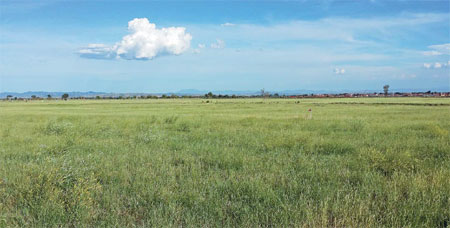|

The Daqing Mountain range in Hohhot, capital of the Inner Mongolia autonomous region, is renowned for its natural landscape and local culture. Liu Xingshuang / forChina Daily
|
Eco project boosts tourism and improves quality of life, Hao Nan and Yuan Hui report.
Blue skies dotted with white powder-puff clouds and fresh air carrying the scent of pine trees and wildflowers greet visitors to the Daqing Mountain range in Hohhot, capital of the Inner Mongolia autonomous region.
The Daqing Mountain literally means the Great Green Mountain, and also gives the city its name, which means the green city in Mongolia.
However, the mountain's name fell short of reality a decade ago and was nicknamed the "great gray mountain" by locals.
The lack of protective vegetation meant the mountainous area's ecological environment was left vulnerable and suffered frequent natural disasters such as droughts and sandstorms.
To improve the situation, the local government has tried every means to solve the problem of large unattractive lookingsandyareas by planting more trees, building infrastructure and parks.
In 2012, the Hohhot government started a large-scale forestry and environmental protection project to revive the mountain's southern slope and transform the area into the city's "back garden".
Under the plan, the government pledged an 11 billion yuan ($1.7 billion) investment over three years to plant more than 10 million trees and build a 660-hectare pasture area.
The authority also invested 3.5 billion yuan for the city's ecological construction.
As of last year, the government had built four parks and landscaped 17 main streets.
The mountainous area's forestry coverage rate has reached 41 percent and the city's per capita green area hit more than 30 square meters, almost fourfold of the country's average.
